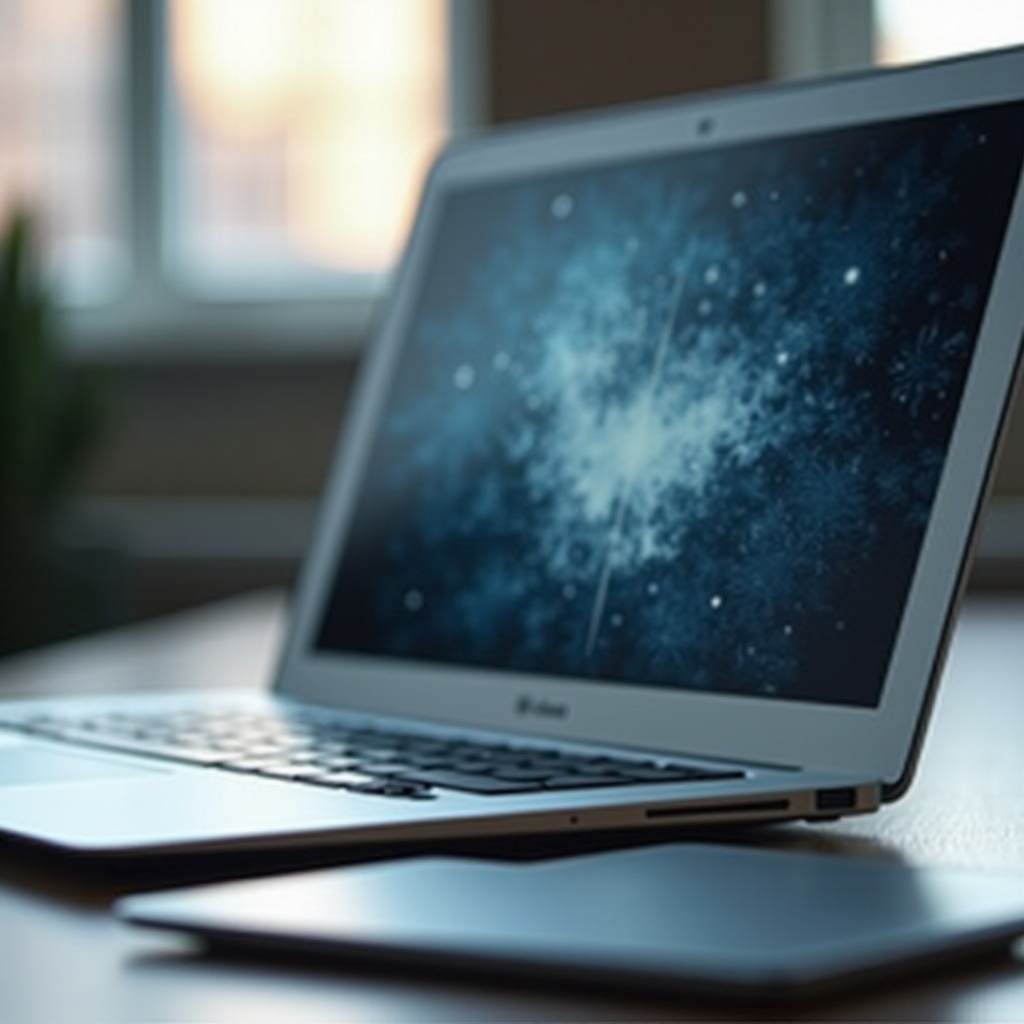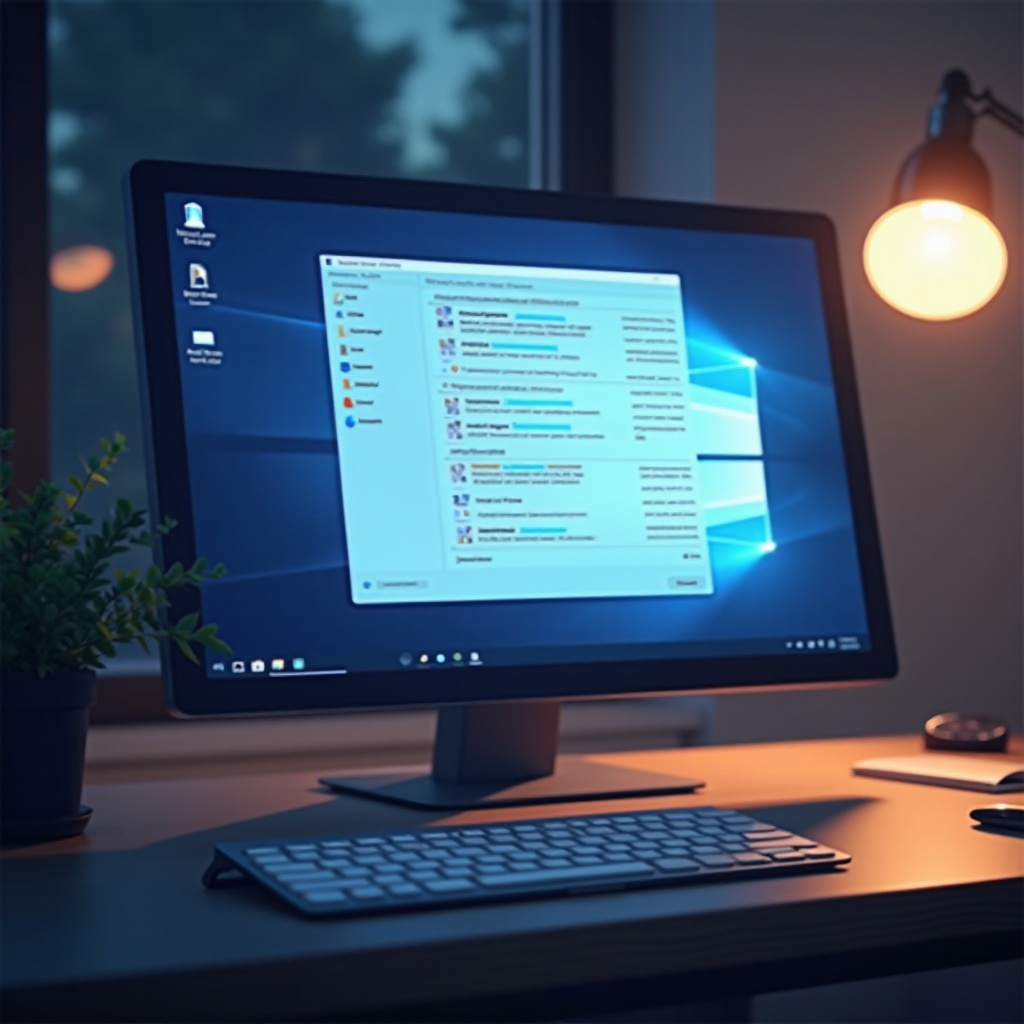Introduction
Dealing with a MacBook Air that keeps freezing can be both perplexing and frustrating. Not only does it interrupt your workflow, but it can also lead to data loss, causing stress and hindering productivity. Fortunately, understanding the root causes and implementing practical solutions can help you rectify this problem efficiently. In this guide, we will delve into the common causes of freezing and explore basic as well as advanced solutions. We will also cover preventive measures to keep your MacBook Air performing optimally. Let’s proceed to resolve these issues and restore your MacBook’s functionality.

Common Reasons Your MacBook Air Freezes
Before diving into solutions, it is crucial to identify the underlying causes of MacBook Air freezing, as this will guide you in applying the most effective remedy. Here are some prevalent factors that can lead to such a predicament.
High CPU and RAM Usage
A frequent culprit behind a freezing MacBook Air is excessive CPU and RAM usage. If you run numerous applications simultaneously, your MacBook may struggle to allocate resources adequately. As a result, the increased demand on the CPU and memory can slow down your device, causing it to freeze while trying to keep up with the load. It’s essential to monitor resource usage to alleviate this issue.
Outdated Software
Another typical reason for freeze-ups is running outdated software. Both macOS and individual applications receive regular updates aimed at fixing bugs and enhancing performance. Using older versions can result in compatibility issues and increased vulnerability to freezing. Ensuring your software is always up-to-date can help mitigate such problems.
Hardware Issues
On occasion, hardware might be the source of the freezing issues. Problems with components such as the hard drive, or inadequate RAM, can impact performance. The physical damage or wear and tear from prolonged use may compromise component efficiency, leading to persistent freezing. Diagnosing and addressing these hardware concerns is vital.

Basic Troubleshooting Steps
If your MacBook Air has been freezing frequently, starting with basic troubleshooting can quickly resolve minor issues and restore normal functioning.
Force Quit Unresponsive Apps
An unresponsive app may be causing your MacBook to freeze. Here’s how you can force quit these apps to regain control:
1. Press Command + Option + Esc.
2. Choose the unresponsive application.
3. Click ‘Force Quit.
Restart Your MacBook Air
A simple restart can often clear up minor system glitches and reset resources effectively.
1. Click the Apple menu.
2. Choose ‘Restart.
3. Confirm by clicking ‘Restart’ when prompted.
Check for Software Updates
Making sure your system and applications are up-to-date can prevent compatibility issues.
1. Click on the Apple menu.
2. Navigate to ‘System Preferences.
3. Choose ‘Software Update’ to install any pending updates.

Advanced Solutions to Prevent Freezing
If basic steps do not solve the problem, advancing to more comprehensive methods can help ensure the smooth operation of your MacBook Air.
Resetting SMC and NVRAM
Resetting the System Management Controller (SMC) and Non-Volatile Random-Access Memory (NVRAM) can resolve persistent performance issues, including freezing:
- Resetting SMC:
- Shut down your MacBook.
- Press and hold Shift + Control + Option and the power button for 10 seconds.
-
Release all keys, then turn on your MacBook.
-
Resetting NVRAM:
- Shut down your MacBook.
- Press Command + Option + P + R and power on the MacBook.
- Hold the keys until the startup sound is heard twice.
Run Disk Utility for Error Checking
Utilize Disk Utility to check and repair any disk errors that might be responsible for freezing:
1. Go to ‘Applications’ > ‘Utilities’ > ‘Disk Utility.
2. Select your startup disk.
3. Click ‘First Aid’ and follow the on-screen instructions.
Reinstall macOS
Consider reinstalling macOS as a last resort to address persistent software issues causing freezing:
1. Backup your data with Time Machine.
2. Restart your MacBook holding down Command + R to enter Recovery Mode.
3. Select ‘Reinstall macOS’ and follow the prompts.
Preventative Maintenance Tips
Implementing regular maintenance measures can help avert freezing incidents and maintain optimal performance of your MacBook Air.
Regular System Updates
Regular updates of macOS and applications can rectify bugs and optimize system efficiency. Always ensure your system and applications are current.
Managing Startup Programs
Reducing the number of startup applications can boost startup time and minimize system load:
1. Open ‘System Preferences’ > ‘Users & Groups.
2. Select the ‘Login Items’ tab.
3. Remove the applications that are not needed at startup.
Disk Space Management
Monitor and manage disk space to prevent performance hiccups. Regularly remove unnecessary files and applications:
1. Utilize ‘Storage Management’ in ‘About This Mac’ > ‘Storage.
2. Optimize storage with iCloud settings.
Conclusion
A freezing MacBook Air can be an exasperating experience, impeding your daily computing tasks. However, by diagnosing common causes and applying effective solutions—from basic troubleshooting steps to advanced fixes like resetting SMC and NVRAM or reinstalling macOS—you can significantly reduce these occurrences. Maintaining your MacBook Air with regular updates and efficient storage strategies will ensure a smooth, uninterrupted workflow. Follow this guide to keep your device functioning at its highest potential.
Frequently Asked Questions
What should I do if my MacBook Air freezes during an update?
If it freezes during an update, force a restart by holding the power button until it shuts down, then restart with a stable internet connection.
Can running too many applications cause my MacBook Air to freeze?
Yes, simultaneously running multiple applications can strain the CPU and RAM, leading to freezing issues.
How often should I perform maintenance on my MacBook Air?
Monthly maintenance involves checking updates and managing disk space, while comprehensive checks should occur every 3-6 months.


